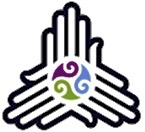Understanding the Benefits of a TESL Certificate
- USA Student Advisory
- Sep 13, 2025
- 4 min read
Updated: Oct 24, 2025
Teaching English as a Second Language (TESL) has become a popular career choice for many individuals around the world. Whether you want to teach abroad, work with immigrants in your community, or simply enhance your teaching skills, obtaining a TESL certificate can open many doors. This credential not only boosts your credibility but also equips you with the necessary tools to become an effective English language teacher. In this article, we will explore the benefits of earning a TESL certificate, provide an overview of what it entails, and discuss whether it is worth pursuing.
TESL Certificate Overview: What You Need to Know
A TESL certificate is a qualification that prepares individuals to teach English to non-native speakers. The program typically covers essential teaching methodologies, language acquisition theories, lesson planning, and classroom management techniques. Most TESL courses include both theoretical and practical components, allowing students to gain hands-on experience.
One of the key advantages of a TESL certificate is its flexibility. Many programs offer online courses, making it accessible to people worldwide. The duration of these courses can vary from a few weeks to several months, depending on the depth of the curriculum and the institution offering it.
Key Components of a TESL Certificate Program
Language Teaching Methodologies: Learn different approaches such as communicative language teaching, task-based learning, and the direct method.
Lesson Planning: Develop skills to create engaging and effective lesson plans tailored to diverse learner needs.
Classroom Management: Understand strategies to maintain a positive and productive learning environment.
Practical Teaching Experience: Participate in supervised teaching practice to apply theoretical knowledge.

By completing a TESL certificate program, you gain confidence and competence in teaching English, which can significantly improve your job prospects.
Is TESOL Certification Worth It?
TESOL (Teaching English to Speakers of Other Languages) certification is often used interchangeably with TESL, but there are subtle differences. TESOL is a broader term that includes both TESL and TEFL (Teaching English as a Foreign Language). Many employers recognize TESOL certification as a mark of quality training.
So, is TESOL certification worth it? The answer depends on your career goals. If you plan to teach English abroad or work with diverse populations, TESOL certification can be invaluable. It provides you with the skills and knowledge to handle various teaching scenarios and learner backgrounds.
Benefits of TESL Certification
Increased Employability: Many schools and language centers require TESOL certification for hiring.
Higher Salary Potential: Certified teachers often command better pay than uncertified ones.
Professional Development: The certification process enhances your teaching skills and understanding of language acquisition.
Global Opportunities: TESOL certification is recognized worldwide, allowing you to teach in different countries.

If you want to maximize your teaching opportunities and ensure you are well-prepared, investing in TESOL certification is a smart choice.
How a TESL Certificate Enhances Teaching Skills
Obtaining a TESL certificate is not just about adding a credential to your resume. It fundamentally changes how you approach teaching English. The training helps you understand the challenges faced by English learners and equips you with strategies to overcome them.
Practical Teaching Techniques Learned
Differentiated Instruction: Tailoring lessons to meet the needs of learners with varying proficiency levels.
Use of Visual Aids and Technology: Incorporating multimedia tools to make lessons more engaging.
Assessment and Feedback: Learning how to evaluate student progress and provide constructive feedback.
Cultural Sensitivity: Understanding cultural differences to create an inclusive classroom environment.
These skills are essential for creating a supportive and effective learning experience. For example, a teacher trained in TESL methods might use role-playing activities to help students practice conversational English in a safe setting.

By applying these techniques, teachers can boost student confidence and accelerate language acquisition.
Career Opportunities with a TESL Certificate
A TESL certificate opens up a wide range of career paths. Here are some common options:
Teaching Abroad: Many countries seek qualified English teachers for schools, language institutes, and private tutoring.
Community Education: Work with immigrants and refugees in local community centers or adult education programs.
Online Teaching: Teach English remotely to students worldwide through various online platforms.
Corporate Training: Provide English language training to employees in multinational companies.
Curriculum Development: Design English language learning materials and programs.
Employers often prefer candidates with a TESL certificate because it demonstrates a commitment to quality teaching and professional development. Additionally, some countries require TESL certification for work visas or teaching licenses.
How to Choose the Right TESL Certificate Program
Selecting the right TESL certificate program is crucial to gaining the most benefit. Here are some tips to help you make an informed decision:
Accreditation: Ensure the program is accredited by a recognized organization.
Course Content: Look for comprehensive coverage of teaching methodologies, language theory, and practical experience.
Duration and Format: Choose a program that fits your schedule and learning style, whether online or in-person.
Support and Resources: Check if the program offers mentorship, job placement assistance, and access to teaching materials.
Reviews and Reputation: Research feedback from past students to gauge the quality of the program.
For more detailed information, you can visit this TESL certificate FAQ page to explore common questions and answers about certification.
Earning a TESL certificate is a valuable step for anyone interested in teaching English effectively. It provides essential skills, enhances career prospects, and opens doors to global opportunities. Whether you want to teach abroad, work with diverse learners, or improve your teaching methods, a TESL certificate can be a powerful asset in your professional journey.







Comments